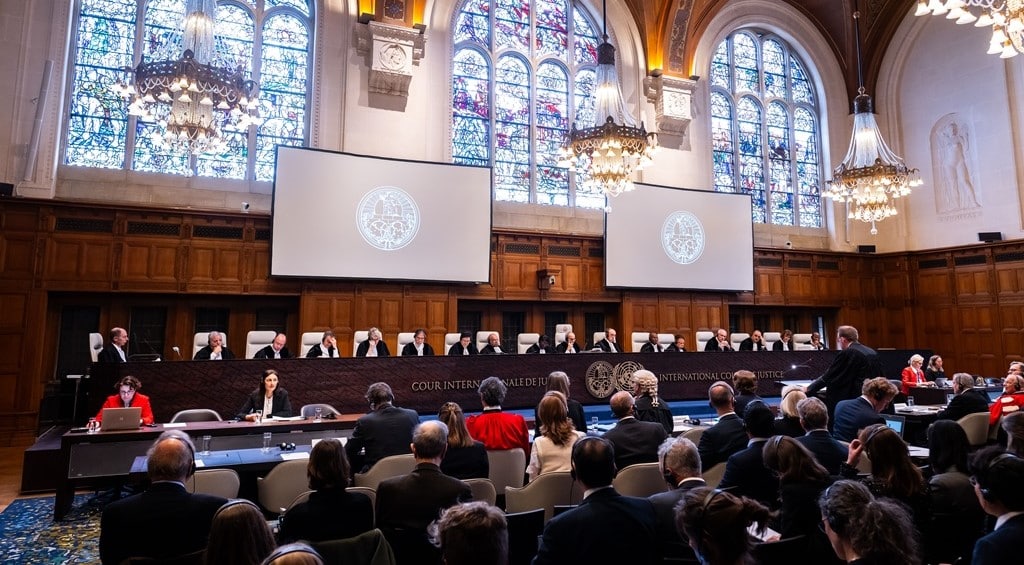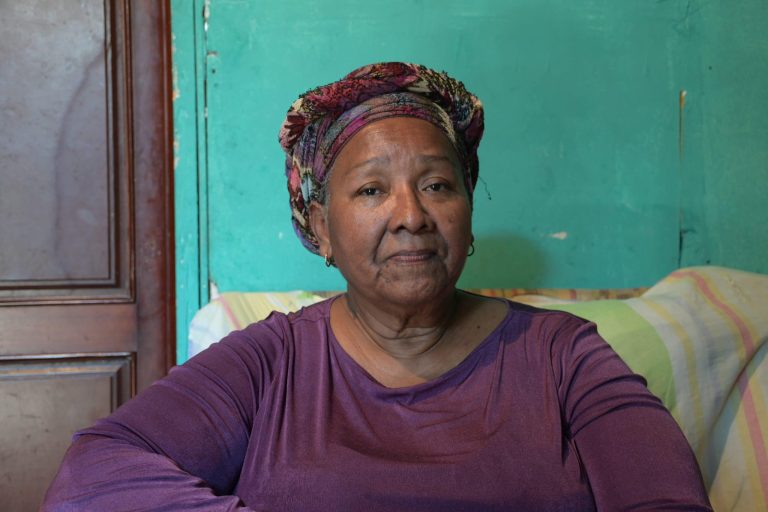12 de abril 2022

ICJ Rules Against Nicaragua's Request For Germany to Halt Arms Sales to Israel

PUBLICIDAD 1M
PUBLICIDAD 4D
PUBLICIDAD 5D
With more than 60 indigenous people murdered since 2016, indigenous leaders reject the regime’s forced proposal of “cohabiting” with the invading colon

With more than 60 indigenous people murdered since 2016
Two indigenous leaders from the Miskito community denounced the killing of over 60 people from their community since 2016. These rural Miskitos died at the hands of colonists from other parts of the country, intent on claiming the natural resources that abound in that area of Nicaragua.
“At least 62 are dead,” confirmed Susana Marley, known as “Mama Tara” – Big Mama in the Miskito tongue. Marley is originally from the community known as “Wangky Maya”, near Nicaragua’s Atlantic Coast and just across the border from Honduras. She has served as spokesperson for the Indigenous Resistance since the eighties; since 2021, she’s been exiled in Costa Rica. “During the last Indigenous Assembly we held – on March 21, 2021, in the city of Waspam – we received declarations detailing 62 assassinations of our brothers and sisters, all members the Miskito and Mayagna groups,” Marley asserted.
Rudwell Rosales, a territorial leader who represents ten indigenous communities, confirmed Mama Tara’s count. Rosales, a native of the Twy Yahbra community of Puerto Cabezas, added that 22 of these deaths were recent. He recalled Johnny, a community leader killed in the sector known as Sangny Line, and a woman leader who was killed along with her sons, by colonists invading her lands.
“There’s been an ongoing invasion of the indigenous territories, especially in Nicaragua’s North Caribbean region,” Amaru Ruiz, president of the River Foundation, affirmed.
Ruiz sees “consistent violations to the indigenous peoples’ human rights and increased incursion into their territories.” That forces the native people to head towards. “Honduras, Costa Rica. or other Miskito zones and territories in northern Nicaragua.”
The Miskito groups reject the government policy of “cohabitation” with the colonists, demanding instead that the Nicaraguan government uphold the Law.
“We roundly refuse the idea of coexistence or cohabitation between the indigenous natives and the colonists, due to the high risk of ethnocide and the impunity that has thrived in the face of crimes against our lives and communal patrimony. We can’t coexist with those who have violated our rights and who seek by all possible means to strip away our communal patrimony,” the Indigenous Assembly declared.
“Since Daniel Ortega came to power, they’ve implemented a policy of “cohabitation” which has further limited the rights of the indigenous communities. These same communities have already witnessed the plundering of their natural resources,” explained Carlos Guadamuz, member of the “Nicaragua Nunca Mas [“Nicaragua Never again”] Human Rights Collective.
Jhoswell Martinez, executive director of Human Rights Observatory, noted: “the armed colonists didn’t invade these lands to plant and harvest, or to raise cattle, as was initially thought, but to exploit the mining resources.”
Given this panorama, the Indigenous Assembly decreed: “No arrangements of any type are permitted between the communities and the colonists for renting the communal lands. The community assemblies will not accept an agreement regarding the communal property, drawn up on the fringes of the law.”
Leaving Nicaragua is a desperate measure indigenous people take to safeguard their lives. However, the realities they find outside of their territories can be very different.
Ruiz, of the River Foundation, explained that he’s unaware of any data on how many have emigrated to Honduras or Costa Rica, but he understands that those who decided to cross the northern border have greater possibilities of fitting in, because they can remain among their own people.
The territory around Nicaragua’s northeastern border is known as the “Great Moskitia”. On both sides of the border, there’s a large Miskito population, allowing those who cross over to adapt easily, including the fact that they can speak their own language.
“That’s not the case in Costa Rica, a country that’s also extremely expensive compared to life in the indigenous territories. In addition, here they don’t have the means or the capability of working the land or fishing, their two main economic activities,” Ruiz commented.
Rudwell Rosales, an indigenous leader who recently arrived in Costa Rica, can’t work because he’s undocumented. He’s barred from his profession (he studied agronomy in the Agrarian University), and also from any other work that could give him a stable income. “I’m having difficulties. For example, right now, I don’t have enough for rent, and the owner has asked me to vacate the room,” he said.
“If God lets me find some stability here, I want to bring over my daughters, my family, because they’re in danger there. Sometimes people come to the house and ask for me, demanding that they tell them where I am,” Rosales continued.
Susana Marley is in a similar situation. She crossed the border into Costa Rica at the end of 2021, together with six other people. All of them, plus three more, now share a two-room dwelling that costs them US $215 a month.
“Our economic situation is like this: if there’s work (she washes and irons, cleans houses and/or toilets, watches properties), there’s food. No work, no food. Sometimes we work one day, but don’t get paid that same day. Sometimes you get 5,000 colones [around US $7.60], sometimes less, but each day it’s more expensive to buy rice, beans, cooking oil, a little chicken,” she detailed.
The tragedy that has split the Miskito communities isn’t unknown to the Nicaraguan and international human rights organizations. Jhoswell Martinez, Carlos Guadamuz and Amaru Ruiz have all made extensive efforts to document the cases they’ve been informed about, and to make them known to the multinational bodies that protect these rights. Unfortunately, that effort hasn’t served to prevent more deaths.
Ruiz notes that the Miskito peoples continue demanding respect for the lands belonging to Nicaragua’s indigenous and Afro-descendent peoples, despite the fact that Law 445 – the Law to Regulate Communal Property – guarantees them legal title to these lands. In addition, in the case of Awas Tigni versus Nicaragua, the Inter-American Court of Human Rights ordered the Nicaraguan government to uphold that law, especially during the phase of territorial restructuring.
“That’s a legitimate complaint of the Miskito, ( ..) indigenous and Afro-descendent communities in the country. In the particular case of the Miskitos, we see increased violations of their rights – including assassinations and displacements. Their economic rights as well as their right to security have been violated, hence they’re seeking other, safer places to live,” Ruiz remarked.
Meanwhile, Guadamuz recalled tha “In 2015, the Inter-American Commission conferred protective measures on six indigenous communities, of twelve that requested such measures, because they were being attacked with the intent to displace them and to take over their lands and natural resources.
“Ever since the government of Daniel Ortega returned to power (in 2007), these communities began to suffer the results of the government policy called ‘cohabitation’, used to continue implementing their system of political patronage by promising lands they don’t have. Lands, forests, resources that belong to someone else, to the indigenous communities,” Guadamuz declared.
“From 2020 onwards, we’re talking about 50 indigenous individuals killed and countless people wounded. There have also been kidnappings, murders, impunity. They’re acts of terror – burning down the houses to displace the communities from their territories,” he added.
For that reason, the Nincaragua Nunca Mas Collective has dedicated their efforts to documenting the attacks “before the mechanisms for the protection of human rights, the universal system, and the Inter-American Commission. All of them have information about these massacres in their hands,” assured Carlos Guadamuz.
Although the problem didn’t begin with Ortega’s return to power, his regime’s policies have deepened the suffering of the Moskitia nation. Experts expressed their conviction that part of the solution must involve a change of government.
“While the Sandinista Front remains in power, it’s practically impossible for there to be a solution to the Miskito’s problem, because they (the government) do and undo things at their will: they grant permission to the small-scale miners, as well as the colonists, to invade the indigenous lands under police protection,” stated Jhoswell Martinez from Human Rights Observatory.
Amaru Ruiz of the River Foundation observed: “We can’t speak of a change in their situation, (…) unless there’s a political change in the country, at the central level. That means deposing the Ortega-Murillo dictatorship.”
Meanwhile, he continued: “the alliance of certain politicians, especially those from the Yatama structure, tied to the Sandinista Front, has been detrimental to the autonomy of the Miskito communities, especially in the north of the country. That alliance has led them to demobilize, to cede a lot of leadership and give up the demands of the social movement that existed before they (Yatama) became a political party.”
This article was originally published in Spanish in Confidencial and translated by Havana Times
PUBLICIDAD 3M
Periodista nicaragüense, exiliado en Costa Rica. Durante más de veinte años se ha desempeñado en CONFIDENCIAL como periodista de Economía. Antes trabajó en el semanario La Crónica, el diario La Prensa y El Nuevo Diario. Además, ha publicado en el Diario de Hoy, de El Salvador. Ha ganado en dos ocasiones el Premio a la Excelencia en Periodismo Pedro Joaquín Chamorro Cardenal, en Nicaragua.
PUBLICIDAD 3D